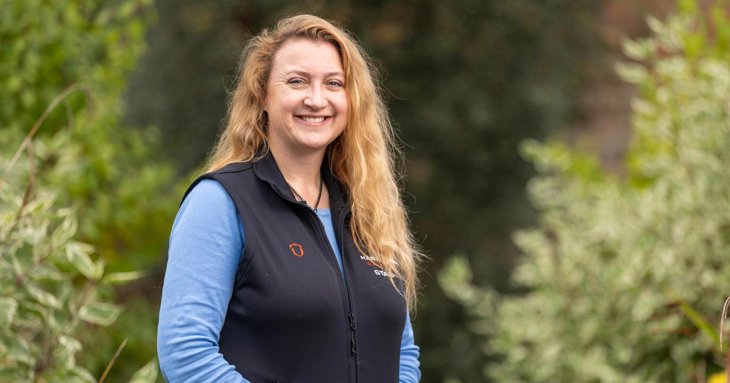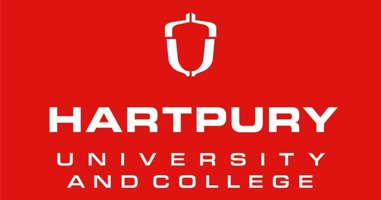As the UCAS application deadline approaches — with the clearing phase following later in the year — SoGlos teams up with Hartpury University and Hartpury College to discuss the options available for those with a love for animals and nature, with courses in animal care, zoology, agriculture and environmental science.
Meet Hartpury's head of animal and agriculture, Wanda McCormick, and discover why studying an animal and agriculture degree programme at Hartpury can lead to a fulfilling and exciting career.
Can you give us an overview of some the programmes available — what kind of person do you often see flourishing in this area of study?
We have a wide range of animal undergraduate degree programmes that cover many different areas of interest people might have.
Animal behaviour and welfare explores how we manage animals in captivity to make sure they have the best possible welfare, while the animal behaviour and training (clinical) degree has lots of hands-on practical activities that help students learn not only how to train animals and manage behaviour problems, but also how to work with owners to improve the welfare of their pets.
The zoology degree allows students to explore the wide variety of species in the animal kingdom, with an important focus on how we can monitor and conserve species, both in zoos and in the wild; and the bioveterinary science course explores everything from how healthy bodies function, through to different pathogens that can cause disease and how we monitor this in animals.
For those students wanting to advance their knowledge and understanding of living systems, our BSc (Hons) biological sciences degree is a great choice. The programme explores the many levels of life, from microbiological organisms through to plants and animals and entire ecosystems. It provides a great foundation for a variety of careers in biology.
Hartpury is known for its specialised facilities, practical learning environment and rural campus. What would you say are the key USPs of its animal programmes that distinguish them from other universities?
The applied nature of our programmes is absolutely our biggest USP.
Whichever subject students choose, we have written the programme after discussions with employers and other professional groups so that we know we are helping people to develop the skills and knowledge that industries want from graduates. This brings in the amazing facilities that we have, which include commercially run businesses.
Few
universities these days own their own farm, but at Hartpury we have a full
commercial farm raising dairy cattle, beef cattle and sheep, so students can
see how the theory they learn about things like monitoring health, welfare or
behaviour really translates to the real world. The rural campus is extensive
and includes a variety of habitats right on the doorstep so for students can
walk straight out of a lecture theatre or seminar room and be right in a living
classroom.
How does Hartpury ensure that students gain hands-on, real-world experience in their respective fields, particularly in courses like veterinary biosciences and animal behaviour?
At Hartpury we work closely with professional industry groups to understand the skills that students will need in the future. A great example is our animal behaviour and training programme that is mapped against the skills required for students to go on and register with a professional body when they graduate.
This degree was specifically designed to meet these needs so students will learn the full range of practical skills that the industry demands. This includes students undertaking a work placement that will allow them to see how the topics they are learning relate to a real-life setting.
No matter which degree students
study with us, there are lots of extra opportunities for them to gain more
practical experience — students can volunteer to work alongside the technicians
who manage our animal collection, help out on the farm with lambing or gain
work experience with the animal hydrotherapy business on site.
What kinds of research opportunities are available for students across these courses, and how does the department foster student involvement in research within animal and environmental sciences?
The staff who teach on the animal programmes are all actively engaged in their own research activities and professional networks. These then become another resource for our students to benefit from.
Every degree student completes a research project in their final year. Students get to choose their own project topic, and it is very common for students to do projects that align with the staff activities as well as with external companies and organisations that we work alongside. The same happens with students who study Masters programmes with us, and we also have PhD students exploring much bigger projects.
Around their degree, students can also gain extra
experience supporting some of these wider research activities. For example,
last year one of our bioveterinary science students was involved in data
analysis on a large project currently running with the Blue Cross around
housing and husbandry of small mammal pets.
Are there any notable industry or academic partnerships that benefit students within the animal and agriculture department at Hartpury?
We have incredibly strong links with lots of local businesses and individual experts who come to speak with students around different topics. On a more national scale though there are several big partnerships of note…
Just a few of these include:
- Animal Behaviour Training Council
- UK Centre for Animal Law (A-LAW)
- Society of Companion Animal Studies (SCAS)
- Association of Animal Assisted Intervention Professionals (AAAIP) and International
Association of Human-Animal Interaction Organizations (IAHAIO)
- Canine Hydrotherapy
Association (CHA)
- Institute of
Registered Veterinary and Animal Physiotherapists (IRVAP)
- British and Irish
Association of Zoos and Aquariums (BIAZA), European Association
of Zoos and Aquaria (EAZA) and World Association of
Zoos and Aquariums (WAZA)
- Agriculture and
Horticulture Development Board (AHDB)
Could you share some insights into graduate outcomes? What career support does Hartpury offer to ensure students are highly employable upon graduation?
The Graduate Outcomes Survey 2024 showed that 98 per cent of students from our animal and agriculture programmes were in work or further study 15 months after they graduated.
This is an amazing success rate and really demonstrates how students on our programmes are developing the skills and knowledge that help them to gain employment when they leave us.
Around the programmes themselves, we have a
really well developed schedule of career support activities that is facilitated
by our innovation, careers and employability team and covers everything from
helping students identifying the type of career they would like through to CV
writing and interview preparation. This team not only support current students
but are also available once people graduate, so we can provide the best
opportunities possible.
Looking ahead, do you have any plans or aspirations for the future of the animal and agriculture department at Hartpury?
Absolutely, industry never stops and neither do we; and our aspiration is to be recognised internationally as the place of choice for people wanting to study in this field.
We are currently working really closely with the small animal hydrotherapy professional bodies to develop new qualification provision for people entering this field and also for those looking to upskill. Our strong links with industry have identified several areas across a range of professions where qualified individuals are looking for CPD opportunities and we will hopefully be able to announce some new opportunities here very soon.
With the
new animal behaviour and clinical degree now up and running we are also continuing
to develop our plans to provide a focus on the many aspects of canine
science that people can study; and there will be more announcements coming in
this area very soon. I can’t give too much away, but Hartpury animal and agriculture is definitely an area to watch!






















